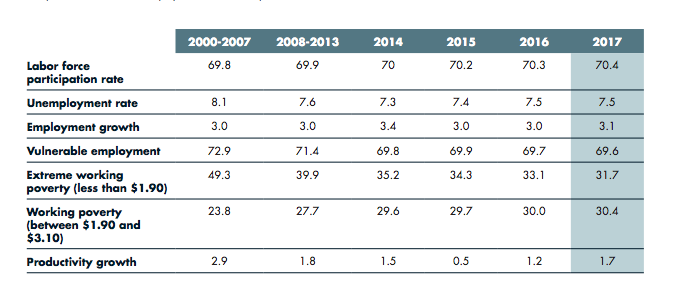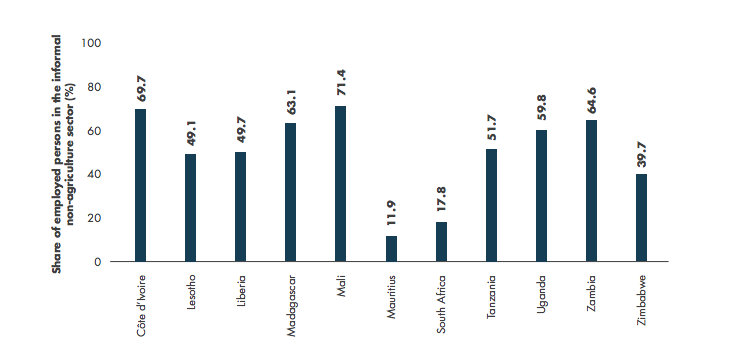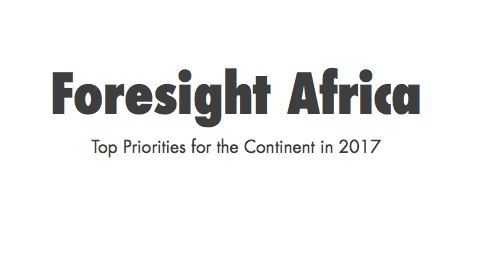From this year’s Foresight Africa report by Brookings Institution, employment prospects in sub-Saharan Africa seem to be stagnating according to data from International Labor Organization (ILO).
Productivity, while predicted to rise in 2016, remains below 2000-2013 levels—largely to due Africa’s lack of economic diversification. In addition, despite decreasing numbers of the extreme working poor (under $1.90/day), many are unable to break the barrier out of the working poor category, as the share of working poor continues to grow.
Not shown here is the underemployment (the underutilization of the productive capacity of the employed population) rate in the region, which, at an extreme, reaches 75.8 percent in Cameroon. Thus, unemployment numbers alone cannot always demonstrate the health of the labor market, as in Ghana, where the unemployment rate is 5.2 percent, but the underemployment rate is 47.0 percent.
The report further highlights that in the sub-Saharan African region, challenges to the creation of job opportunities for the youth stem from a combination of demand- and supply-side factors. In terms of supply, there is a marked mismatch between skills demanded and those attained by job seekers.
Related; Moody’s Gives Negative Rating to Sub-Saharan Africa
Lack of access to finance for youth and particularly female entrepreneurs further limits growth and expansion opportunities. Labor demand is constrained by insufficient private sector growth resulting in muted employment growth.
The Informal Economy In Sub-Saharan Africa
There is a substantial informal economy in many African countries & it contributes 50-80 percent of GDP, 60-80 percent of employment, and 90 percent of new jobs in the Sub-Saharan Africa region.
This high proportion of informality in the African labor market, though, deters much economic and human development. Not only is the informal sector less productive overall, but the individuals in the sector tend to earn less, not receive benefits, and lack many social protections. Policies to encourage movement to the formal sector would boost both the economy and livelihoods.
Download The Report; Foresight Africa 2017 Report



